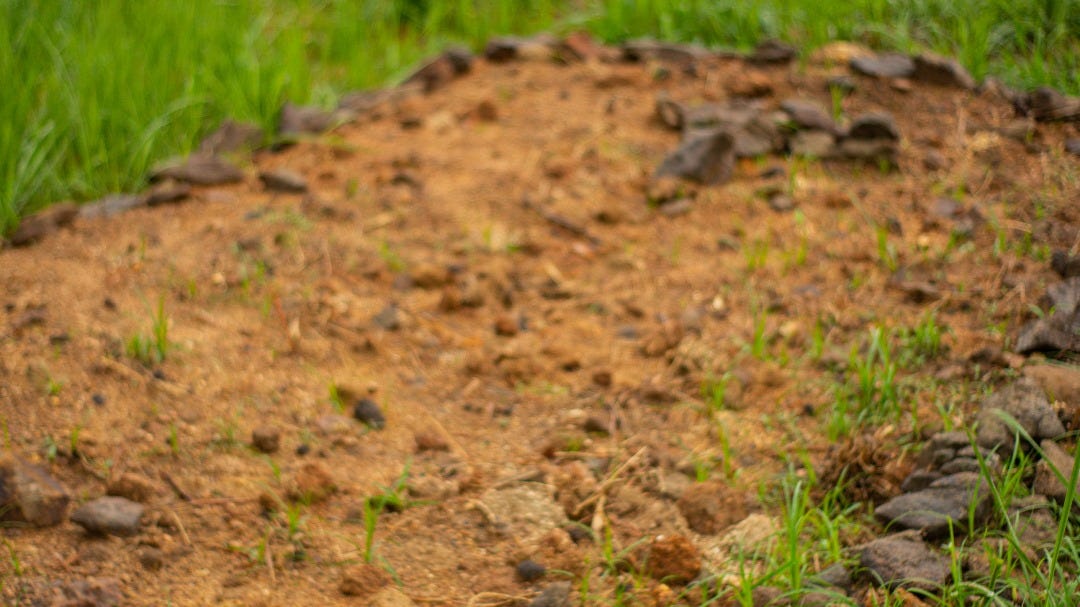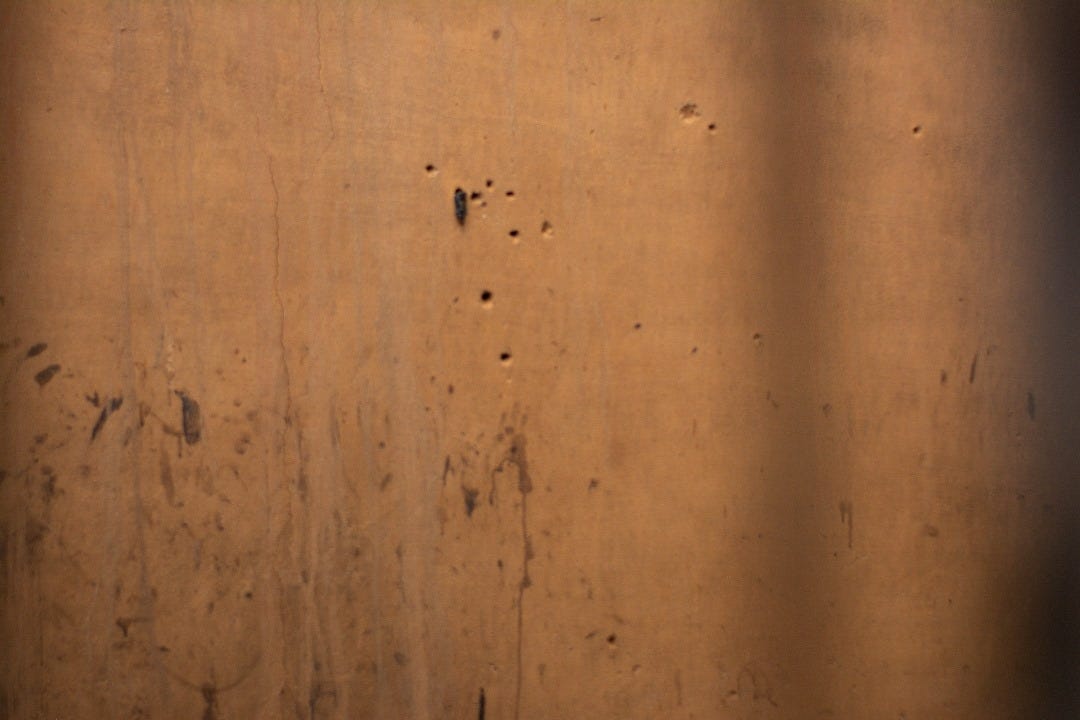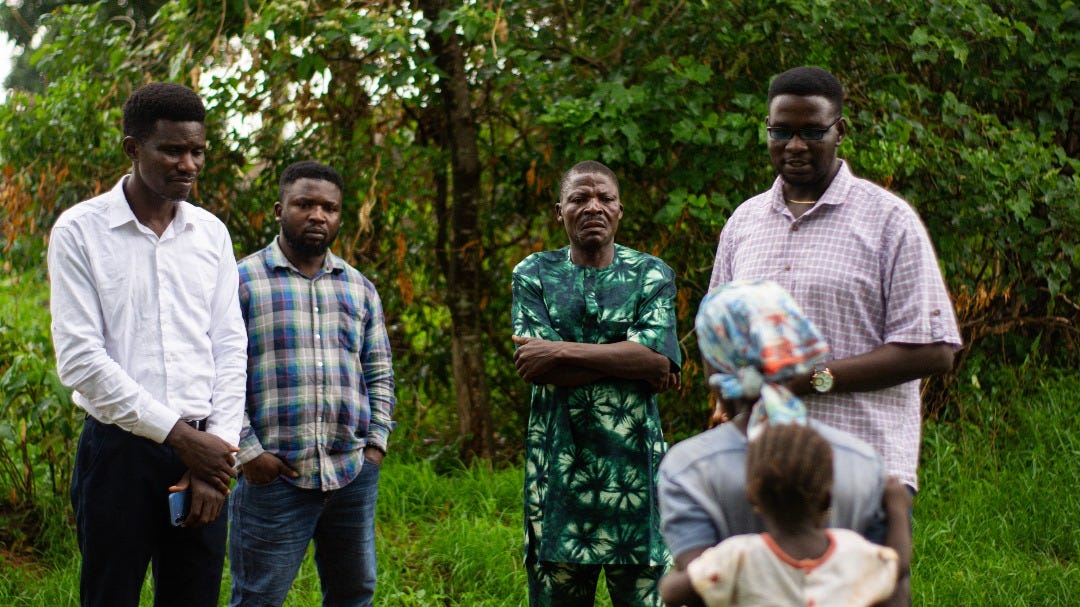Where is the Police?
Burned Homes, Missing State in Kwall Massacre
When the night burned and no one came, a village was left to bury its own.
Godwin Adeboye
Published by Theo-Sight

On the midnight of Sunday, April 13, 2025, Kwall, a small town in Bassa Local Government Area of Plateau State, Nigeria, became a furnace of flames and fear. Surrounded in the dark by armed men—believed to be Fulani militia from the nearby Kaduna border—villagers awoke to a siege they could not escape. By dawn, 52 Christians lay dead. Bodies charred, food barns torched, families wiped out in their sleep. As the community gathered to bury their dead in a mass grave on April 15, there was one haunting question: Where were the police? The speech made by Mr Kayode Egbetokun while on a condolence visit to the Plateau state governor suggests that the Police force may not have adequate manpower at the moment. The usual situation has been that police have been absent to confront the attackers during attacks.

The attack on Kwall in the early hours of Sunday, April 13, 2025, was a highly coordinated and methodical assault carried out under the cover of darkness. According to eyewitness accounts, the assailants—suspected Fulani militias—approached the village from multiple directions, strategically encircling the community to block all possible escape routes. Once the town was surrounded, they launched their assault by setting homes ablaze, many of which still had sleeping families inside. The invaders targeted not only residential structures but also essential survival infrastructure: food barns, grain reserves, and small shops were deliberately torched. This left the surviving community in utter devastation, not only mourning the loss of lives but also stripped of their means to feed themselves. In the aftermath, children could be seen scavenging through the rubble for scraps of food, while mothers resorted to boiling wild leaves to feed their infants. The tactical nature of the attack—surround, incinerate, and starve—suggests a calculated effort not just to kill but to destroy the community's ability to recover.
This massacre was not the first. Nor was it random. Over the years, Irigwe Christians have faced recurring attacks that follow a clear pattern—coordinated, militarized, and executed with precision. Survivors say the attackers spoke Fulfulde. Some came through the thick bushes bordering Kaduna. No boundaries. No police posts. No protection.

“I locked my four children in the room when I saw the fire,” said one mother, now a widow. “When I came back, I found them hugging each other. Burnt.”
Eyewitnesses describe a practice of abandonment. The military base nearby remained unresponsive. No gunshots fired. “They told us there was no order to intervene,” one man said, tears tracing his ash-covered face.
Two days after the attack, Governor Caleb Mutfwang visited Kwall. Standing before the community, he apologised. “I am sorry this happened,” he said. But sorrow cannot replace justice. There have been no known arrests. No known investigation. Just silence. The community women who lost their husbands and children cried with no hope of stopping as they saw the governor. The scene was horrible.
Beneath the silence is a strategy. Locals say this violence is not only religious—it is territorial. Fertile Irigwe land is the prize. “They want to frustrate us so we leave,” said an elderly man. “But this land carries our ancestors’ bones.” In the absence of state protection, theology steps in. The mass grave becomes a sacred space—a site of martyrdom. But theology must not become resignation. It must be resistance. This is where reframing matters. These are not just victims; they are witnesses. Their graves tell a story Nigeria refuses to hear.
We must reframe the silence, not as an absence, but as an indictment. We must ask: Who benefits from erasure? Who writes the headlines? Who names the martyrs? As Nigeria prepares for the 2027 elections, we must ask every candidate: Where were you on April 13, 2025? Where was the police?
To prevent further tragedies like the Kwall massacre, two urgent practical steps must be taken. First, a functional police post must be established in Kwall, supported by a community-based policing model. The complete absence of security infrastructure in the town enabled the attackers to act with impunity. Locally trained personnel who understand the terrain and community dynamics could respond swiftly to threats and build trust with residents. Second, there is a pressing need for clarification of the boundary between Plateau and Kaduna States. Kwall’s geographic position at the intersection of both states has turned it into a lawless buffer zone. Attackers exploit this jurisdictional grey area, crossing state lines with ease and escaping accountability. Clear boundary demarcation, interstate cooperation, and the deployment of joint security task forces are essential to sealing off safe routes used by criminal groups.
Beyond security infrastructure, both theological and community-level responses must be strengthened. Ecclesial advocacy should lead the way. Churches must convene national synods that focus explicitly on the protection and safety of rural Christians and their communities. Collaborations with international Christian bodies can unlock resources for security, relief, and legal support. Local vigilante teams already active in many villages should be equipped, recognised, and legitimised by law. Ethical documentation is equally critical—there must be a coordinated effort to preserve the memory of victims and martyrs through national archives and digital platforms that resist erasure.
Additionally, survivor support, particularly for widows and children, is a moral and humanitarian imperative. Tailoring training programs, Mobile training programs, trauma counselling, and micro-grants for small businesses can empower these women to rebuild their lives with dignity. Finally, the Church must embrace a theology of resistance—training pastors to interpret suffering as a call to resilient faith, and incorporating such theology into seminary curricula. Hope must be preached not as escapism but as spiritual defiance against systems that aim to silence and exterminate.
The massacre in Kwall is not merely a security failure. It is a spiritual, humanitarian, and national emergency. It poses urgent questions: Who counts as a citizen in Nigeria? What is the price of Christian faith? And who will remember the names of those the fire consumed?
Godwin Adeboye is a theologian and an ethnographic researcher in advocacy, historical missiology and ecological sustainability. He visited the site of the attack with the Theo-Sight media team.






I'm challenged by this reframing detailing the post-insurgent experience of the survivors.
The novelty in bringing in theology not as a resignation but as a resistance is credible. Thanks Dr Godwin